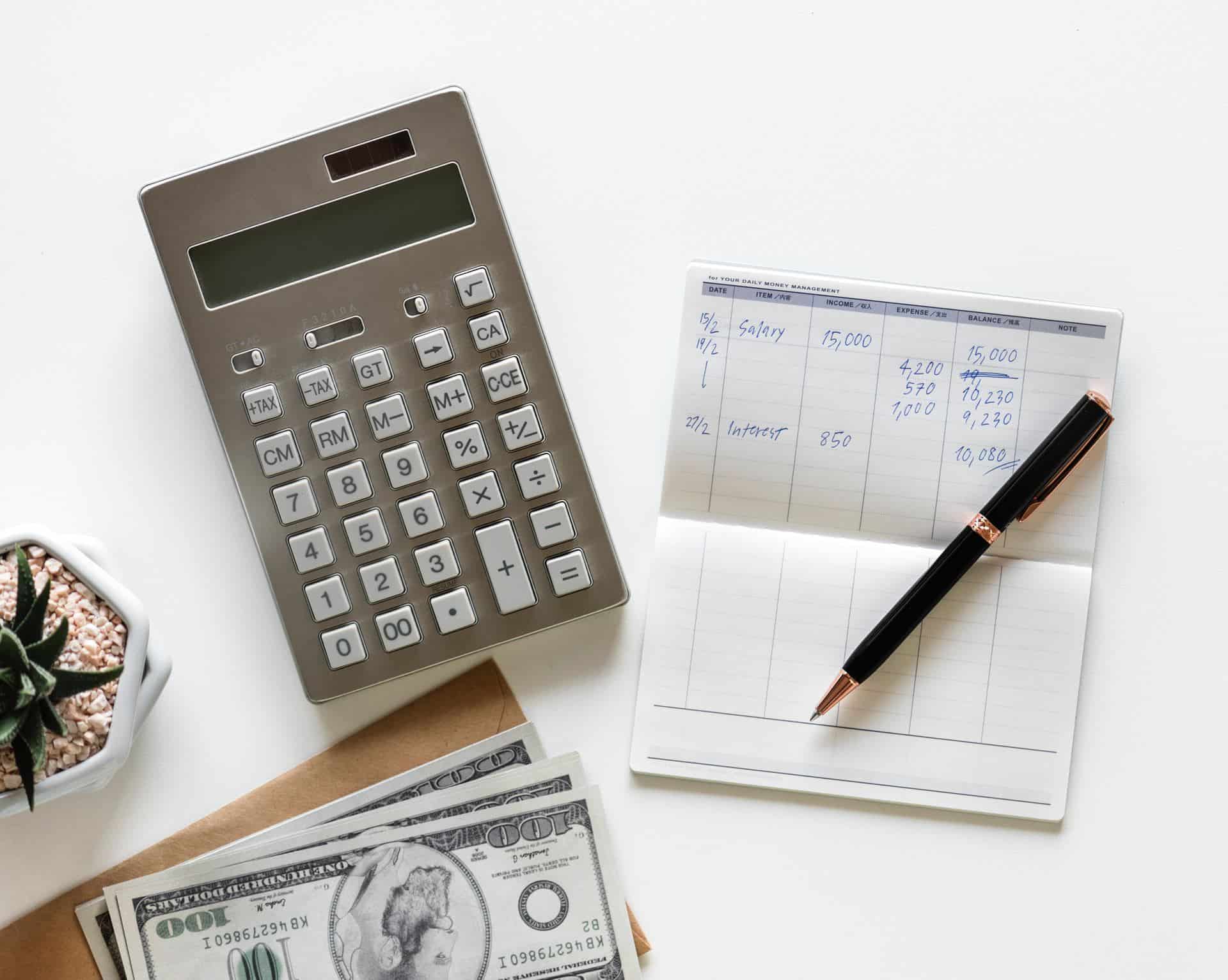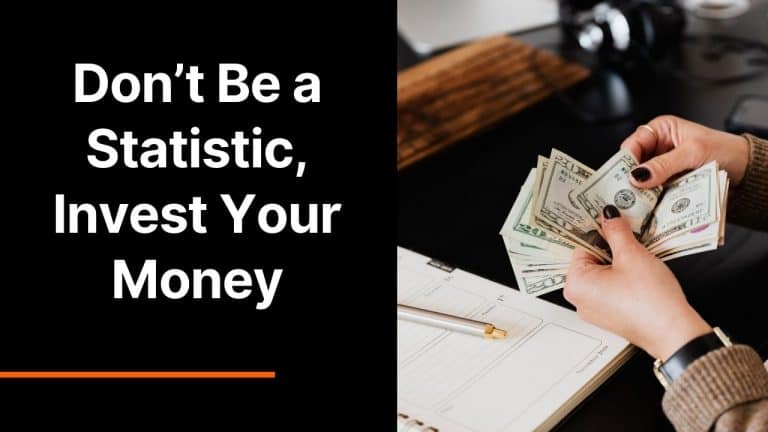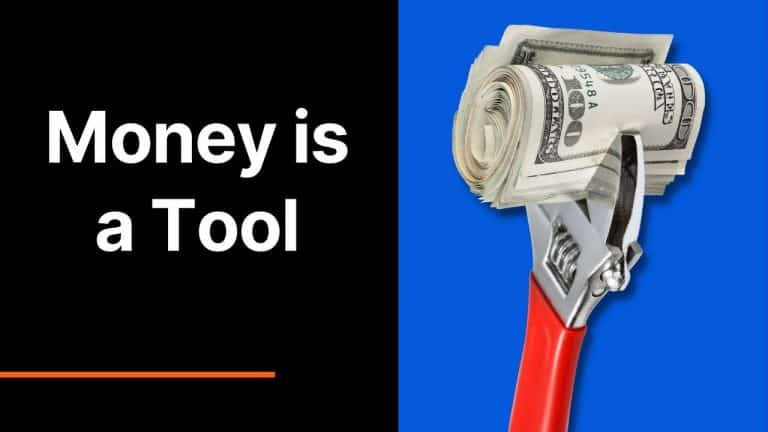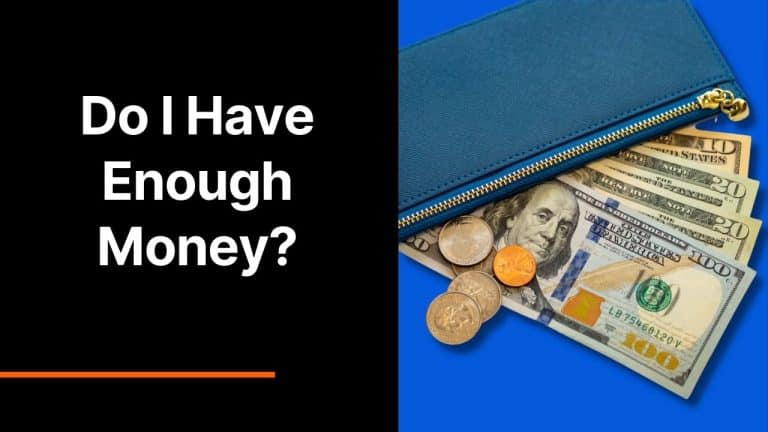5 Money Mistakes to Avoid in Your 20s
There are 5 major money mistakes to avoid in your 20s.
Because life is one big crazy adventure.
And along the way, I’m sure you’ve made your share of money mistakes. Your mistakes may not be the 5 money mistakes I’m going to cover today.
But even if you don’t want to admit it right now… there’s at least one thing you’ve done wrong with your money so far in your life.
And it’s nice to learn from the mistakes of others.
I know I’ve messed up in quite a few ways. And these mistakes are what got me thinking and writing. All 5 points are based upon money mistakes I actually made myself.
There are a lot more money mistakes to avoid in your 20s but these are the mistakes I made.
So without further delay, let’s dive right into it.
Money Mistakes to Avoid in Your 20s
Mistake #1) Going to College
I’m sure after reading that headline you might have paused for a minute and said… wait what?

Did I read that right?
And yes you did! College is not right for everybody.
It’s an old, out-of-date system that no longer holds the value it once did.
Our current educational system teaches most students college is the next step after high school.
Parents, mentors, teachers, and society all play a role in the development of each and every young adult.
As we grow up, everything in our world tells us going to college is what’s best for us. And because of this influence, a lot of young adults will feel the pressure as they have to make this life-changing decision.
They must each decide, what’s next?
A decision they might not even be ready to make.
A decision that could keep them in debt for a significant amount of time into their adulthood.
This happens especially when students are not well informed or don’t fully understand what they’re getting themselves into by enrolling in college.
Going to college for the wrong reasons tops the list of money mistakes to avoid in your 20s.
Many will even drop out before receiving that oh-so coveted piece of paper.
A paper that states you have satisfied their requirements and are now ‘educated.’ If you’re interested, here’s some more info on drop-out rates.
Many will graduate only to go back home (probably with mom & dad) or settle down and work a minimum wage job right after graduating. I know quite a few who have gone through this, maybe this is you, or maybe you know someone in this boat.
And although college can be a fantastic place to learn and grow, it’s sad…
Because in reality, you don’t need a piece of paper or the approval of anyone to be educated.
University and colleges are businesses.
They need you, the student, to operate.
They thrive off of YOUR money that supposedly goes towards “tuition” and your hunger for knowledge.
However, knowledge is often cheap and in many instances, free.
In fact, you’ve got more knowledge than you could ever consume in a lifetime in your pocket if you have a smartphone on you.
This is why going to college just isn’t for everyone. It’s a huge money mistake. And it’s definitely one of the money mistakes to avoid in your 20s.
It’s only right for you if you’ve thoroughly thought it out. You know EXACTLY what it is you want to do and get out of it. Doing some research beforehand never hurts. But if you really want to major in something, just do it!
Just have a plan in place so you can graduate on time while spending the least amount of money possible.
I did not do enough research which is why I made this money mistake myself.
I didn’t think my major through and going into my sophomore year at the University of Connecticut I was lost and I had no idea what I wanted to do.
And I came in as a Pre-Pharmacy student (even though I sucked at math and chemistry). Then I tried switching to nursing but the program and school of nursing had limited enrollment seats.
So I ended up having to switch and I became a Health Science major.
Keep in mind that I was paying a ton in tuition every year while trying to figure out what I really wanted to do.
Even with so many things going wrong, I did manage to do one thing right.
I joined the Air Force R.O.T.C. program on campus and worked my ass off to secure a job after graduating.

Serving and joining was something I thoroughly thought through. It was on my mind for quite some time.
Anywho, I now believe you should only go to college if you want to be a doctor, lawyer, nurse, or anything technical. Something where you need a piece of paper that states you are certified.
But if it’s not something that requires a 4-year-degree certification, you have options. You can:
- Learn on your own.
- Keep more money in your pocket by going to a community college.
- Shadow someone and gain some real-world experience.
- Learn a trade or skill that costs way less than a degree. Certain trades even pay as much if not more than certain degrees (ex. Electricians, Construction, HVAC). And when you’re done, you’d be in demand right away.
- Invest in online courses that teach you exactly what you need to know for what you are going to do.
- Wait a few years until you’ve figured out what you want to do before getting a degree you’re not going to use. Give yourself permission to take some time off. Grow and discover what it is you really want to do and then when ready, go back when YOU feel like it.
Do it your way. Not how everyone else wants you to do it.
I myself have learned more (real-world practical knowledge, which I use daily) on my own since graduating than I ever learned going to 8 a.m. lectures and 3-hour labs for 4 years.
But don’t get me wrong, those 4 years were an experience of a lifetime.
I met some really cool people. I was exposed to different thought processes and lived it up while on campus. And, if you’re down with paying thousands each year for this experience then sure, go to college.
But if you could care less about the experience, networking, and random adventures, you don’t need college.
It just doesn’t make financial sense for everyone anymore.
The cost of attending college has increased each year but our pay and your pay when you graduate has not increased at the same rate. In fact, between 1994 and 2014, tuition fees at the average public four-year university have risen 110%.

Mind-blowing isn’t it? It may have been the right financial decision for your parents and grandparents to go to college but in this day and age, it might just dig you into a deep financial pit with little to show for it.
But if you must go, I have some advice I’d like to share with you.
This advice comes after graduating with two degrees and a bit of regret in how I went about receiving those degrees.
Looking back I definitely would’ve done things differently.
And here’s how and what you should consider…
- Think your major through and ask yourself, “do I really need a degree for what I’m about to do in life?”
- I think you should definitely work while going to school. A part-time job can help pay for books, food or tuition and could result in you paying less interest on those student loans.
- Apply your ass off for scholarships and do any and everything you must to secure “free money.” Sure you might have to write some essays and meet certain requirements within the scholarship application but the money is more than worth it. I’d recommend Scholly if you’re looking to save time and get scholarships you’re eligible for.
- Finally… consider going to a community college for 2 years and then transfer to a public university to finish up.
- And if possible, live at home for as long as you can.
Just know that going to college for 4+ years not only costs a ton of money but it will also cost you time.
If you’re going to college to satisfy someone else’s desires instead of doing what you truly wish to do, you’re wasting precious time.
And there have been thousands upon thousands of people throughout history who have made it without ever receiving an expensive piece of paper or stepping foot on a college campus. Like…
- Ellen DeGeneres
- Steve Jobs
- Michael Dell
- Russell Simmons
- Rachel Ray
- Dr. Dre
- Henry Ford
And many, many more.
Success does NOT require a college degree.
Mistake #2) Not Saving After Jumping Into The Workforce
This is one of the worst mistakes I’ve made so far in my life.
And of all the money mistakes to avoid in your 20s in the long run this will end up costing you the most over the course of your life.
Saving and
I’d get paid, and it’d be gone. When instead, I should’ve been paying myself first every single month.
Just 10-20% of your paycheck tucked away over the course of a few years goes a long way.
The reality of how broke I was didn’t hit me until after I was separating from the military. My eyes weren’t wide open as to how careless I was with my money until after I had a sit down with a financial advisor.
After years of working up until that point, I earned a good amount of money. The advisor and I estimated I earned about $375,000 after working full-time for 5 years.
In fact, I started working when I was in high school at the age of 16, right when I could legally start working. So that number is probably a bit higher.
I saved up so I could buy myself a little car after spending so much time riding my bike to work.
That first job was at a nursing home for elderly patients with dementia and Alzheimers. I was pretty much a one-man kitchen. I’d prep meals, serve the residents their food and clean up after everyone was done eating.
It put money in my pocket. Afforded me some new clothes and humbled me at the same time.
So after adding up how much money I made and blew over the years with that financial advisor, I was pretty mad at myself.

$375,000+ earned through my working life and next to nothing saved in comparison.
My money was squandered. Gone, never to return!
Shit, they make it so easy to spend money nowadays…
You can swipe your card, use apple pay, and a bunch of other apps out there. It all requires little to no thought. At least for me, that’s how it usually is.
But when I have cash on hand and pay without swiping, it’s way harder for me to spend a lot of money.
So, if you’re reading this and aren’t saving a portion of each paycheck, you’re just spending or swiping away, it’s time to stop.
Start saving and paying yourself like yesterday. Your creditors and debt can wait. And I’m not saying you shouldn’t pay them or fall behind on what’s due.
But, you work for you and your family. So it’s only right you pay yourself 1st after the government takes their cut out of your paycheck.
With the right budget, your bills and creditors won’t miss the 10% you’ve set aside for yourself.
Start slow, maybe you just save 5% of your paycheck each time you get paid and gradually work your way up to 10% and so on going forward. But something (even 1%) is better than nothing.
Don’t be like the younger version of me and have nothing to show for your hard work and effort. Well I mean I do have some furniture, pots and pans, expensive electronics, and some cool memories.
But for the most part, I have no idea what I did with it all. I was unaware of where my money was going. And right now I’d much rather have the cash I spent in an investment account or even just my bank account.
Holding onto your money is much better than many of the short-term thrills we end up spending it on. There will always be something new for you to splurge on.
From new electronics to cars, accessories, clothes, and shoes. The cycle will continue on and on. And the funny thing is you’re not really missing out on anything if you choose to go without. What you have already works and is just as good if not better than what they’re pitching you on TV every day.
Retailers want and need your money to survive.
They have to come up with “new” things for you to buy, even if there’s only a slight modification to what you already have. And let’s be real, if it’s something you really want and need, it can wait! It’ll be there a month, or a year later when your finances better suit making that purchase.
Become aware of where your money is going each month and whenever you are paid. Not paying yourself 1st is one of the best money mistakes to avoid in your 20s.
And you might surprise yourself with how much you’ve made and wasted over the years like me. If so, enough is enough, don’t stress it, accept it and make the shift towards a solid financial future.
Start saving,
Mistake #3) Buying a New Car
Buying a new car is one of the biggest money mistakes to avoid in your 20s.
And yes, we all need to get from point A to point B.
But how we get there doesn’t have to cost you a monthly car note, interest on that loan, or a high insurance bill.

A $5,000 car or cheaper will get you to your destination the same way a 30k-50k car will. Sure that used car might need more repairs every now and then.
But in the long run, driving an older car is cheaper. Even if it doesn’t drive as smooth, or look as nice…
They both have 4 wheels and a gas tank.
This is why buying a new car, especially when you can’t afford it is a huge mistake.
And unfortunately, one that I have also made and don’t want you to make. Unless of course, you are balling and making a ridiculous amount of money and would like to treat yourself, go right ahead.
I didn’t always have a nice car. It wasn’t until I got into an accident with my old 2004 Nissan Altima that I went ahead and made a bad decision to finance a new car. Why?
Well at the time I was young and way less educated on these financial matters than I am now. I had to get to and from work, and I was tired of paying a ridiculous amount of money for a rental.
Which, for some reason or another I never included on my insurance coverage. 🙁 But that’s another story…
Because of my time crunch and not wanting to deal with unforeseen maintenance I decided I’d get something new. So my brother and I went to the dealership, picked a car I liked, sat down with the salesman, made sure I wasn’t getting worked over or talked up, and signed the paperwork.
Looking back, the one thing I did do right during that process was haggling my ass off.
I got a bunch of freebies along with my shiny new purchase. And I didn’t have a bad interest rate on the loan at all (it was 1.9% for those wondering) because I had good credit and did my research.
Today, I have no regrets about the car. I just didn’t need to buy a new car and make payments for something I could’ve paid for one time in cash if it were used.
Once again I cost myself money in the long run. The money I’ve been putting towards my car note every month could’ve been money invested in an index fund.
If you invest that money, in a couple of years, it could gain anywhere from ~5-12% on interest. You’d have more money and a higher net worth instead of paying a car note and interest on that loan you just took out.
Plus, I don’t know if you’ve been told this yet, but cars are a depreciating asset.
The minute you sign the paperwork and drive off the lot, that new car you just purchased minutes ago is worth less than what you paid.
So… don’t be like me and make this money mistake. Shop around and look for something even if it’s a couple of years old or used.

And if you absolutely must purchase something new, do your homework!
Don’t get swindled, read the paperwork before you sign it. Bring someone along with you who has your best interest at heart.
And please, please, please make sure the interest rate on the loan isn’t something ridiculous. Otherwise, you could be paying more than you should for your new car for many years to come.
Mistake #4) Not Having an Emergency Fund
If an emergency or some random expense came up, could you find $1,000 right now to cover the cost?
If not, you’re not alone. And this has happened to me in the past. I’ve had to go to the emergency room without health insurance before and boy that E.R. bill wasn’t cheap.
If I had $1,000 I would’ve been better prepared for that bill. But I know there are millions of other individuals living without an emergency fund. Studies have shown that just 29 percent of Americans have six months’ worth of expenses saved.
And while I don’t mean to spread negativity… something bad, or out of our control is more than likely to happen at some point, and we should all be prepared for those moments.
So wouldn’t it be a great idea if you had $1,000 set aside in a bank account where you could access it quickly if needed?
I think so!
$1,000 in your bank account can cover unforeseen life events like this:
- Car maintenance
- Airfare to see an ailing family member
- Major household repairs
- A trip to the emergency room
And having that money prevents you from relying on others or charging these unplanned
I don’t know about you but as a very self-reliant person, I hate asking others for money. So, if you can afford to set aside more than $1,000 for your emergency fund then you should.
But know that $1,000 is just a starting point.
The standard recommendation is to have 3-6 months of your living

Let’s say you lose your job. With money set aside, you’ll have the short-term security of an emergency fund until you can land a new one.
I know establishing an emergency fund can be hard though. Especially when starting out.
So… start with $1,000 and don’t stop saving until you’ve reached this goal. Then work your way up to 6 months’ worth of savings set aside. Come up with a plan and start saving.
That way when you need it, your emergency fund is there.
Also, if and when you use it, don’t forget to replace what was used. If an emergency happens and you use all the money you saved, replenish it as soon as you can.
You want this cash on hand for the next unforeseen emergency or life event.
Not having an emergency fund is one of the biggest money mistakes to avoid in your 20s.
Mistake #5) Carrying Debt
Being stuck in debt is no fun.
And it’s probably a feeling you can relate to if you’re reading this right now. It’s also the final money mistake and one of the most important ones on this list. Why?
Because in some way or another it relates to the four previous money mistakes above.
If you’ve gone to college (without a scholarship or tuition paid for), never saved any of your money, bought a new car, or don’t have an emergency fund, you too are likely in debt.
But don’t worry, if you got yourself in debt, you can get yourself out.
While it might take some planning, it’s completely doable.
You may have to make some short-term sacrifices. Not go out with your friends or family, eat out less, and spend less money overall.
But your future is just as important if not more important than always having fun and living in the moment.
Carrying over debt each month can:
- Bring unwanted stress
- Lower your credit score
- Cost you MORE $$$ in monthly interest payments
- Cause you to miss out on things (potential
investments )
However, you can prevent all of the above by making yourself a budget. Once made, stick to it until you’ve gotten rid of that debt.
Without a budget or a plan that tells your money where to go, you could find yourself in deeper debt.
It wasn’t until I got myself on a budget after being in debt for a while that things started to turn around for me.
I’m slowly paying off my creditors, cash flowing, and climbing my way out of debt. And every spare dollar counts!

And making a budget today is so easy.
Websites and apps like YNAB, Mint, Personal Capital, and Every Dollar do most of the work for you. All you have to do is enter your information.
And if you’re old school all you really need is an excel sheet or a pen and a piece of paper.
So, figure out what’s right for you, make a plan and start attacking your debt today.
And with that you now know all of the money mistakes to avoid in your 20s.







